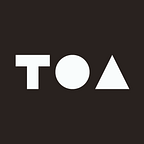AI technology scares you? Good: that means it’ll improve the world (probably)
- Justin Evans, Co-Founder of music AI company LANDR, explains why AI scares people — and why this also means it’s doing something right
- Some people will always recoil from revolutionary AI — but you can win them over if you give them what they want
- It isn’t end-of-days, sci-fi scenarios which fuel fear of AI: it’s the fear of losing your job
AI is already, surreptitiously, a huge part of our world. For instance: if you’ve listened to pop music made in the last year or so, AI has probably already had a positive effect on your life, although you’d probably never know.
LANDR create AI technology for musicians and producers that replaces the expensive final audio mixing stage known as “mastering”. Some traditional sound engineers hate LANDR’s AI due to its automated nature and because it lacks a human touch. Meanwhile, thousands of musicians love it — for very similar reasons.
Co-founder Justin has plenty of experience when it comes to overcoming negative reactions to AI — ranging from it’s scepticism or outright hatred.
Listen to his full, frank talk, or read his key insights below:
People adopt “scary AI” surprisingly fast:
If you make a good product, identify the less scared people, and help them, within a year, you’ll get off-the-scale feedback: “We love you,” “You saved my life,” “It just takes three clicks!”
But you’ll never win over the die-hard haters.
Just work on being so good that you can counter their main complaints; and so that you exceed expectations of the undecided.
Turn “ors” into “ands”: explode binary thinking to ease acceptance:
People freak out at the idea of an “artistic AI”. And people often think in binary when they’re afraid: “art” or “technology”; “human” or “algorithm”; “feeling” or “logic”; “data” or “intuition.” Show that art and technology put together are important and human.
When you know who isn’t so scared of you, you can focus on those people.
Giving musicians an automated service that was better than the job they could do themselves improves their lives for a small amount of money. And they respond positively. The more people you win over, the less scared the rest become.
You can win over influencers who really do like you.
Derrick Ali from Top Dawg Entertainment, who mixes Kendrick Lamarr’s music, amongst others, uses LANDR. AI has been used to master number one Billboard records and Lady Gaga tracks. That’s money-can’t-buy credibility for this kind of technology, and reverberates trust around the large creative musician community.
Listen to your users, and help them learn.
Education brings trust, so help your users learn about skills adjacent to your AI. Justin’s users were asking: “How do I mix?” or “How do I use a delay effect properly?” So LANDR told them: users found it useful, discovered LANDR, and understood how the AI helped them.
Know who is intensely scared of you, and let them go.
LANDR’s tech ensured that sound engineers would hate them. And you can’t win over the people you alienate that hard. But there are many more musicians than sound engineers, and being a musician can suck in today’s tough music business.
So if you work really closely with the people who could love your AI, and make sure they tell you exactly what they want, you’ll be making AI that they will embrace.
This conversation has been edited for clarity and length.
If you enjoyed this article, please consider hitting the ♥︎ button below to help share it with other people who’d be interested.
Get TOA.life in your inbox — and read more from TOA’s network of thought-leaders:
Sign up for the TOA.life newsletter
Trusting the machine: AI will reveal what is art, what is beauty, and which are the hidden diamonds
Forget self-driving cars — make way for self-paying cars: the future of payment could be cars that negotiate deals, not just roads
